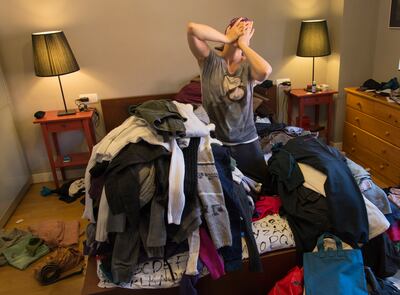Carbon emissions will be the focus of the Cop26 climate change summit in Glasgow.
Global leaders will be under pressure to outline their steps for delivering a net-zero future and limiting global warming to 1.5°C.
But the world cannot rely on governments alone to make the required changes, people need to step up with their contributions along the way.
Here are some changes that can help reduce the damage to environment.
Cut down on red meat
The farming industry is a huge driver of carbon emissions and helps fuel deforestation. Livestock farming alone creates 14 per cent of all greenhouse gases.
Making the right diet choices can help to reverse these trends, particularly reducing consumption of red meat such as lamb and beef.
Experts say that consumers should be conscientious and get to know how food is produced and where it comes from. Going vegan could also help save the planet.
Cop26 preparations — in pictures
A study published in the Lancet Planetary Health journal this month found the shift away from red meat in recent years is already having a positive impact on land use, water use and emissions in the UK.
But scientists have said that meat consumption needs to be cut by 30 per cent by 2030 to reduce methane emissions from cattle and sheep that help drive global warming, and to free up land for absorbing carbon and boosting nature.
Drive less, fly less and take the train more often
Transport is responsible for almost a quarter of carbon dioxide global emissions, with flying particularly bad for producing CO2.
Domestic flights may shave hours off your travel time but produce the largest emissions per person per kilometre.
Although they are often more expensive, train journeys can have less than a fifth of the impact of a domestic flight.

Ethical shopping
Fast fashion is bad for the environment. The industry is responsible for 10 per cent of all greenhouse gas emissions and 85 per cent of clothing is disposed of every year.
For example, it takes 3,781 litres of water to make one pair of jeans, according to a UN report.
Shoppers should think before they buy, donate clothing rather than throwing it away, and choose better-made garments that will last longer. Second-hand clothing is also preferable to buying new.
Remember: it's not all or nothing
Some action is better than none. If you can’t give up meat, your car or flying completely, then it is best to simply cut back.
By taking action, you make it mainstream for the public to demand alternatives to carbon intensive products and services, and profitable for companies to do the right thing.
Dr Stuart Capstick, deputy director of the Centre for Climate Change and Social Transformations, says there is a delicate balance between individual and collective responsibility.
He points out that the bigger your footprint, the bigger the benefits when you decide to make changes.
“The top 10 per cent [of incomes] have a disproportionate share of emissions, and for those groups transport and travel comprises a big part of their footprint, and a lot of that is flying,” he says.
“So not doing those things that contribute to having a massive footprint clearly does make a difference.”
















